
For a time, the new general manager did get a box office boost—a bevy of new productions, better casting, and the excitement of regime change got the box office to 88% of capacity for a couple of seasons, despite the economic downturn. But then, the slow decline resumed. In the last full pre-covid Season (2018/19), ticket sales were down to 67% of possible revenue. A recent newsstoryin the Times published on the day after Christmas hinted at a much larger box office decline without providing full details.
The article revealed that the recent revival of Don Carlo only managed to take in 40% of the ticket revenue. One imagines that other revivals fared similarly poorly. A quick survey of the Met website shows wide swaths of available seats for the upcoming performances of La traviata and L’elisir d’amore. Only new works like The Hours and Fire Shut Up in My Bones have been achieving sold-out houses. As a result of these changes in attendance patterns, the Met said it will be taking three significant actions.
- Taking up to $30 million dollars from its endowment to close the projected budget gap resulting from underperforming box office and, one assumes, the unplanned expenses from December’s cyberattack. Taking from the endowment means the board and major donors are tapped out after decades of astronomic fundraising targets. While non-profits are expected to spend down around five percent of their endowment each year, additional withdrawals from the endowment can invite scrutiny from New York State’s Attorney General.
- Increasing the number of new works presented each season and will open each season with the Met premiere of a new opera.
- Reducing the number of performances next season by nearly 10 percent. One assumes only planned revival performances will be cut.
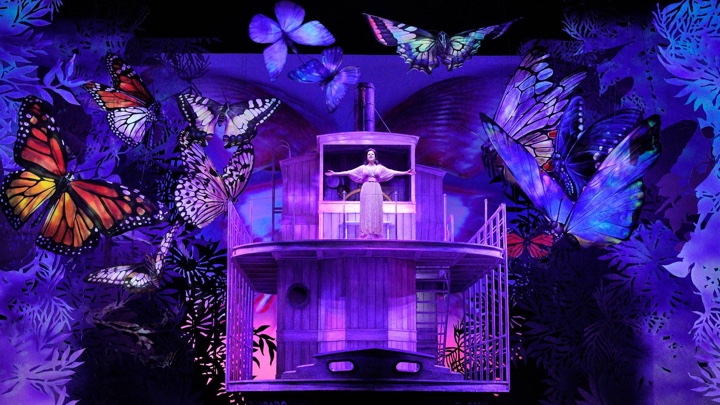
Florencia en el Amazonas, coming to the Met in 2023-2024.
These repertory changes are long overdue and are hopefully not too late. It has been clear for many years that seasons larded with endless revivals of the same works make limited box office sense. This approach worked (sort of) when the Met box office relied on (a) large number of long-term subscribers that were largely interested in revivals of well-known works in “classic” productions and (b) crowds of opera tourists who wanted to see plush, Zefferellian productions that couldn’t be found most anywhere else.
COVID broke all this. Going to the opera house—even when masked—is a high-risk activity for older subscribers. Moreover, subscriptions are no longer a necessity with so much disruption and uncertainty. Buying seats for a performance over a year in advance feels like a pointless folly when excellent seats can be found days or weeks in advance of a performance.
Even The Hours had plenty of available seats in the run-up to opening night and there are plenty of seats still available for Champion, even though the Met clearly expects it to do well. As the article noted, other arts organizations that rely on subscriptions purchased before the start of the season face similar challenges.
So, is there anything else the Met can do aside from the steps it just announced? It depends on the goal. Is the goal to get Met patrons with lapsed subscriptions to resubscribe or to find new subscribers? I don’t think that is possible without a complete restructuring of the subscription program—something that is expensive and risky. What if the goal is to boost attendance, particularly for revivals?
For that, I have some ideas, but first we have to explore how FOMO drives ticket sales. When I look at the season plans for different opera houses, I ask myself “Is this something worth traveling for?” and “Is there something else worth seeing if I bother to make a trip?” For this year’s Met season, there is very little worth traveling for unless you are a true opera obsessive.
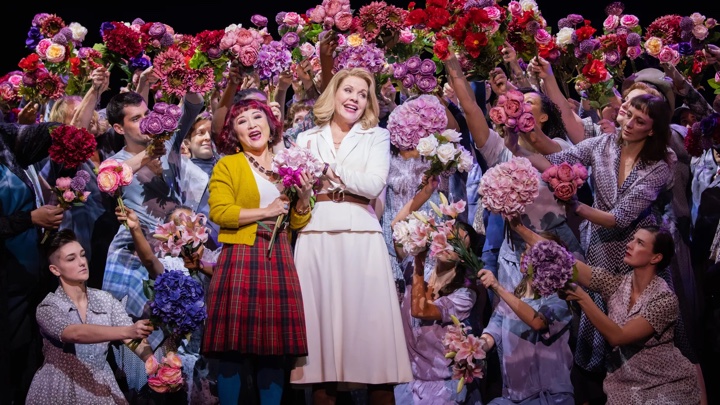
The Hours, the Met’s smash hit of 2022
If I were a more casual operagoer and didn’t live in NYC, I probably would have come to NYC for the compelling cast and subject matter of The Hours and would have filled out my itinerary with some theater or a concert at the rebuilt Philharmonic. Otherwise, I might have traveled in for Champion or the new Lohengrin but it would have been better if both could be seen in a single short visit to NYC. I would have skipped the new Zauberflöte under the assumption that it would likely be a fixture in nearly every season.
I don’t think I would have traveled for the Medea—even though I’ve never seen a staged performance of the work—because I can’t imagine paying hundreds or even thousands of dollars to travel to see another hideous, inept David McVicar joint. The revivals would only merit a ticket purchase if one is interested in a particular work or a particular singer believe that a similar calculus drives ticket purchases, nowadays, for those who live in NY Metro.
People are only buying tickets to things that they might seriously regret not seeing, and not investing in the performances that only manage to rate a “well, that would be nice to see.” There’s very little in this Met season that strikes me as “unmissable.”
So what could the Met do?
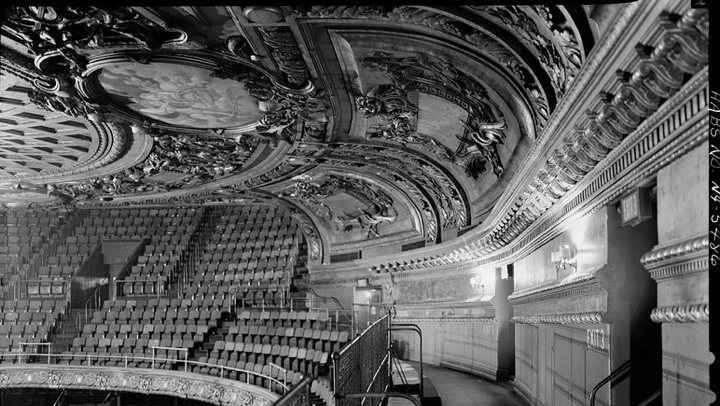
Sorry, this idea is off the table
Create some sense of scarcity around revivals. Why would anyone go see La traviata or La bohème when it feels like you can pretty much always go to the Met and see those works. When the same works keep repeating from season to season, there is no urgency around seeing revivals unless they have particularly compelling casts. Even then, the list of singers who could actually achieve a SRO crowd is smaller than it has ever been.
Announcing, for example, that Bohème would not return for five seasons might motivate people to schedule a performance.. Look at what announcing the closure of Phantom of the Opera did for ticket sales of that crumbling chestnut of a production.
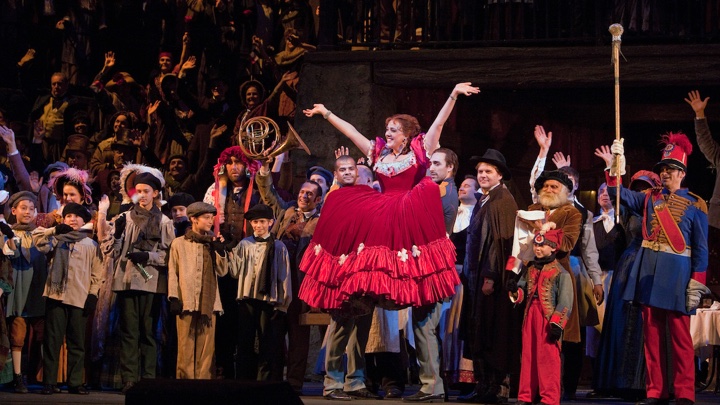
Now and forever
When those shows do come back, a variety of starry casts for the same opera would build some box office excitement, just as it did for the most recent revival of Into the Woods. Messaging of “We know we haven’t seen La Bohème in a while, so we found some extra special singers” will surely sell more tickets than “ We’re doing our usual 15 performances La Bohème and we found some singers, so please come”
More one-off events. Short runs of rare operas in concert would be a good box office stimulus and a more efficient use of Met resources. I doubt we will see Medea return and I would have been happy, nay even happier, to have seen it in concert. In this way, the Met could offer a greater variety of works in the season. Some simple projections—at most—would be all the scenery these works would need.
Similarly, more concerts at the opera house would be welcome. I would certainly want to make sure I had a ticket to say, an evening of Kelli O’Hara doing a variety of operatic and Broadway works (or David del Tredici’s Final Alice, but I may be the only person who desperately wants to see that.) Right now, the most important task at the Met is getting people back into the habit of the opera house and it will take something special to do that. Allowing subscribers to get first dibs at the special events and short runs might even boost subscriptions.
Festivals / Extensions: At non-profit theaters, they usually have time in their schedules for extensions to the planned limited runs. These extensions provide a welcome boost of box office revenue and allow companies to benefit from the buzz surrounding a work. The play Downstate has had several sold-out extensions even though there were lots of tickets available before the show opened to extremely positive reviews and great word-of-mouth.
Now extensions are hard to do in an opera house with a carefully laid out season. So, maybe don’t announce all the performances of a work and then announce a “special extension” when demand starts to surge.
Or take the Munich or Berlin Komische Oper approach of a season-ending festival with the year’s “greatest hits” and short runs of carefully curated revivals. Conveniently, these festivals take place during the peak tourist months. I recognize this creates more scheduling challenges and the festival content must be chosen in advance, but the Met could always create suspense by announcing festival content later in the season.
Again, they could reward the few remaining subscribers with the opportunity to purchase tickets before the box office opened to the general public. From a timing point of view, it would probably help box office to allow subscribers to next season early access to this year’s festival performances.
httpvh://youtu.be/Zw3WeHUyubY
More musicals: This is tricky. There are lots of companies doing musical revivals in NYC, but I think there are definitely some shows that would benefit from the large-scale production that the Met would provide. The Barrie Kosky production of Fiddler on the Roof that played to great success in Chicago and would be a natural as would a new production of Show Boat or Follies.
It would be refreshing to see West Side Story with a properly-sized orchestra and a full troupe of dancers. I guess one has to put Candide on these lists, but I would wait for a director who could really make something special out of that show. Musicals would work best in a 3-4 week run at the end of the season and that is probably the most cost-effective approach.
Purge the Directorial Roster: We simply don’t need any more new productions by McVicar or Michael Mayer. Together, they have given us some of the most hideous and inept productions I’ve had the misfortune to see in the opera house. I recognize that defenestrating them doesn’t help sell tickets to the many revivals of their shows that are already penciled in, but at least it acknowledges past failures.
Why don’t we get productions from Rachel Chavkin or Lileana Blain-Cruz or any of the other directors that have brought poetry and excitement to complex large scale works? Maybe give them a chance to test drive working at the house by having them stage the musical of their choice. (I would think that either one of them would give us a boffo Candide. )
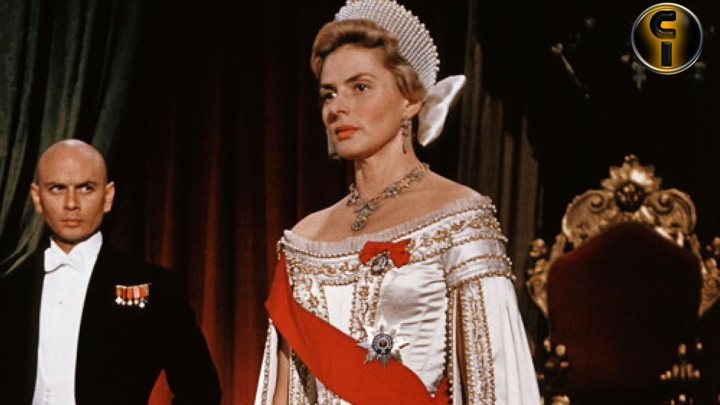
Maria Vladimirovna, Grand Duchess of Russia, Head of the Imperial House of Romanov
Embracing Fascism?: There is an article—that I won’t link to, but it’s by someone uniquely qualified to opine on the future of the Met because he chairs the revanchist Russian Ball in Washington, D.C.,” a major social event in the U.S. capital” that claims “Maria Vladimirovna, Grand Duchess of Russia, Head of the Imperial House of Romanov” as its patroness. He argues the Met is failing because
- knee-jerk “wokeness” is poisoning the repertory and performing arts organizations;
- the largely imaginary crime wave in NYC is scaring the good burghers away from the Met and
- there aren’t enough sexual predators left at the company to get everyone’s creative juices flowing and
- having Rudy Giuliani as mayor-for-life would somehow have prevented all the Met’s problems
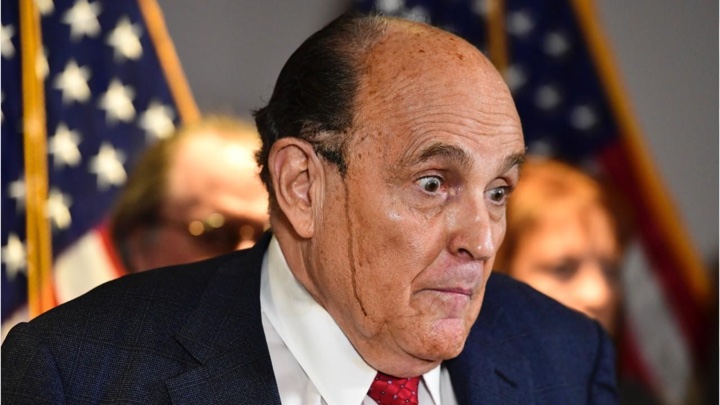
The true Head of the Imperial House of Romanov
To which I respond
- the works that the author dismisses as “woke” are the ones that are doing best at the box office and the author really just wants to use a handy dog whistle to complain about works he doesn’t like. Also, you can’t accuse the Met of being “woke” until they offer vegan food options
- tourists and New Yorkers don’t seem to have been scared away from Broadway this fall
- why do columnists for blogs that extol the virtues of “freedom” devote so much time to defending sexual predators. Is it too much for artists to be able to work in a harassment free workplace?
- who among us is not pleased Rudy Giuliani is no longer around to continue his destruction of the city and the demonization of minorities? When it came to doing anything that actually helped the Met, I can’t think of anything that he did to improve ticket sales or the company’s finances.
We all want the Met’s fortunes to improve. I don’t look forward to a future of dwindling attendance, fiscal crises, and increasingly less ambitious repertory. Whether Gelb is the leader who can bring about the necessary changes to avoid that scenario is unclear. Further changes in programming and scheduling will require a complete restructuring of the contracts with the Met unions and I don’t know if he—or anyone else—can achieve that before the Met is forced to declare bankruptcy.
I do hope the Met will find the courage to make more changes like the ones that were recently announced and ignore the many pundits who say the Met can only succeed by embracing the past. I don’t know what that means—and neither do they.
Do we have nightly seances? Do we find a couple of billion dollars to rebuild the old Met even though the house was recognized as unworkable as early as the 1920s? Does the Met have to check in with bloggers or the writers of angry letters to the New York Times before announcing its future plans?
Tell the Met what you think—chime in here with your ideas. I’d love to hear about your fantasy seasons. Maybe, just maybe, some of those ideas will take hold and get the Met on a better path and we can continue to find each other at the Millo pole for many seasons to come.
Photos: Marty Sohl | Metropolitan Opera (Bohème); Cory Weaver (Florencia); Evan Zimmerman (The Hours)


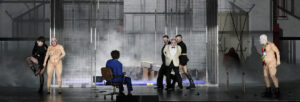
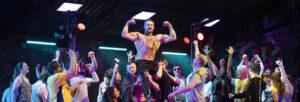

Comments